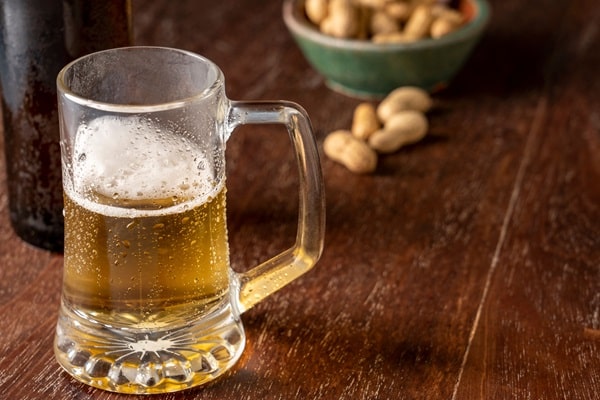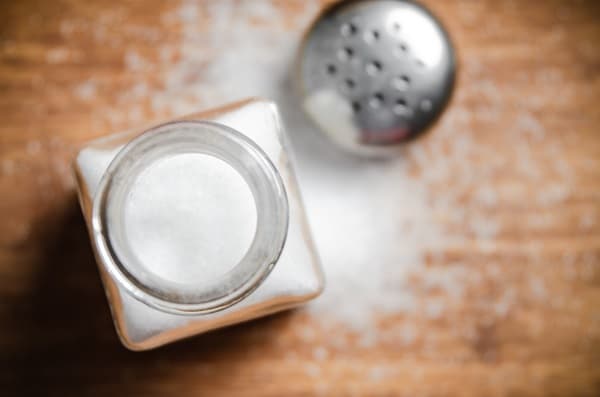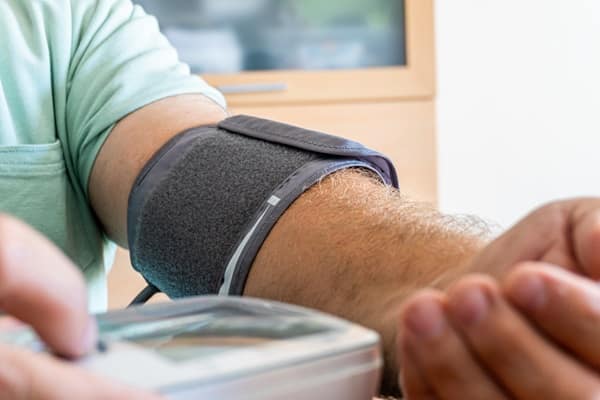Maintaining healthy blood pressure levels is crucial for overall health and well-being. High blood pressure, or hypertension, is a common condition that significantly increases the risk of heart disease, stroke, and kidney failure. Natural strategies to manage blood pressure offer a complementary approach to traditional medications, focusing on lifestyle changes and dietary adjustments. This post aims to explore proven strategies for lowering blood pressure naturally, providing readers with practical advice and actionable steps to improve their cardiovascular health and reduce their risk of hypertension-related complications.
Limit Alcohol

Excessive alcohol consumption has been linked to an increase in blood pressure levels. The relationship between alcohol and blood pressure is dose-dependent, with higher amounts of alcohol intake leading to greater increases in blood pressure. Alcohol can also interfere with the effectiveness of blood pressure medications. It’s not just about the direct effects on the cardiovascular system; alcohol can contribute to weight gain and liver damage, which in turn can affect blood pressure.
To manage blood pressure levels, it is recommended to limit alcohol consumption to moderate levels. For men, this means no more than two drinks per day, and for women, no more than one drink per day. Cutting back on alcohol can be achieved through various strategies, such as setting drinking limits, choosing alcohol-free days, and finding alternative ways to relax and de-stress. By adhering to these guidelines, individuals can significantly reduce their risk of hypertension and improve their overall health.
Reduce Stress

Chronic stress plays a significant role in hypertension. The body’s response to stress involves the release of hormones that increase heart rate and constrict blood vessels, leading to temporary spikes in blood pressure. Over time, these repeated spikes can lead to sustained high blood pressure. Additionally, stress can lead to other unhealthy behaviors, such as overeating, poor sleep, and substance abuse, which can further exacerbate blood pressure issues.
Adopting effective stress management techniques is essential for lowering blood pressure naturally. Techniques such as mindfulness meditation, deep breathing exercises, and regular physical activity have been shown to reduce stress levels and, in turn, blood pressure. Incorporating these practices into daily life can help manage stress more effectively. Establishing a routine that includes time for relaxation and activities that bring joy can also play a crucial role in mitigating the impact of stress on blood pressure.
Eat More Fruits And Vegetables

A diet rich in fruits and vegetables is beneficial for reducing blood pressure. These foods are high in vitamins, minerals, and fiber, and low in saturated fat and calories. Potassium, found abundantly in fruits and vegetables, helps to balance the effects of sodium and supports healthy blood pressure levels. Consuming a variety of fruits and vegetables ensures a broad intake of these beneficial nutrients, which can aid in the prevention and management of hypertension.
Increasing the intake of fruits and vegetables can be simple and enjoyable. Strategies include incorporating a fruit or vegetable at every meal, experimenting with new recipes, and choosing snacks that include fresh produce. For example, adding berries to breakfast cereals, including a salad with lunch, and snacking on carrots or apple slices can significantly increase one’s daily intake of fruits and vegetables. Making these dietary changes can have a profound effect on blood pressure and overall health.
Get Plenty Of Exercise

Regular physical activity is a cornerstone of blood pressure management. Exercise helps lower blood pressure by improving the efficiency of the heart, enabling it to pump blood with less effort. Over time, this reduces the pressure on the arteries and lowers blood pressure. Aerobic activities such as walking, jogging, cycling, and swimming are particularly effective. Engaging in moderate to vigorous exercise for at least 150 minutes per week, or about 30 minutes most days of the week, is recommended for significant health benefits.
Creating a consistent exercise routine can be challenging, but it is achievable with the right approach. Start with activities that are enjoyable, as this increases the likelihood of sticking with them. It’s also beneficial to mix different types of exercises to keep the routine interesting and to work various muscle groups. Setting realistic goals and gradually increasing the intensity and duration of workouts can help build stamina and commitment. Remember, even small increases in physical activity levels can have a positive impact on blood pressure and overall health.
Reduce Salt Intake

High sodium intake is a well-known risk factor for hypertension. Sodium holds excess fluid in the body, increasing the volume of blood and, consequently, the pressure on blood vessel walls. The majority of sodium in the diet comes from processed and prepared foods, rather than salt added during cooking or at the table. Reading food labels and choosing products with lower sodium content can significantly reduce overall intake. Cooking at home also allows for better control over the amount of salt used in meals.
Reducing salt intake doesn’t mean sacrificing flavor. Using herbs, spices, and lemon juice can enhance the taste of food without the need for additional salt. Additionally, gradually reducing the salt in your diet can help taste buds adjust, making foods taste less bland over time. It’s also helpful to be aware of hidden sources of sodium, such as in bread, processed meats, and canned soups. By making informed choices and small adjustments, it’s possible to significantly lower salt consumption and positively impact blood pressure.
Improve Sleep Quality

Good quality sleep is essential for maintaining healthy blood pressure levels. Sleep allows the body to regulate stress hormones and helps to maintain a healthy balance of the nervous system. Disruptions in sleep patterns, such as those caused by sleep apnea, can significantly affect blood pressure. Studies have shown that people who get less than six hours of sleep a night may have an increased risk of hypertension. Therefore, prioritizing sleep and addressing any sleep disorders is critical for blood pressure management.
Improving sleep hygiene involves creating a conducive sleep environment and adopting habits that promote restful sleep. This includes maintaining a regular sleep schedule, ensuring the bedroom is dark, quiet, and cool, and avoiding caffeine and electronic screens before bedtime. Establishing a relaxing pre-sleep routine, such as reading or taking a warm bath, can also signal the body that it’s time to wind down. For individuals struggling with sleep issues, consulting a healthcare professional can provide strategies and treatments to improve sleep quality.
Quit Smoking

Smoking is a major risk factor for developing high blood pressure and cardiovascular diseases. Each cigarette smoked temporarily raises blood pressure for many minutes after finishing. In the long term, the chemicals in tobacco can damage the lining of artery walls, leading to narrower arteries and increased blood pressure. Quitting smoking can therefore significantly improve heart health and lower blood pressure, among other health benefits.
There are various strategies and resources available to help quit smoking, including nicotine replacement therapy, prescription medications, and support groups. It’s important for individuals to find a method that works for them, as quitting smoking is often challenging. Support from family, friends, and healthcare providers can also make a significant difference in the success of quitting. The benefits of quitting smoking are immediate and long-term, improving overall health and quality of life.
Monitor Your Blood Pressure Regularly

Regular monitoring can help track progress and ensure that efforts to lower blood pressure are effective. Home blood pressure monitors are widely available and easy to use, providing a way for individuals to stay informed about their blood pressure levels. Regular monitoring can also help identify potential issues early, allowing for timely adjustments to lifestyle changes or medications.
Engaging with healthcare professionals for regular check-ups is also important. They can offer personalized advice, support, and adjustments to treatment plans if necessary. Being proactive about blood pressure management involves both self-monitoring and professional medical guidance to maintain optimal health.
The Bottom Line
Adopting natural strategies to lower blood pressure is a proactive approach to improving cardiovascular health. Limiting alcohol intake, reducing stress, eating a diet rich in fruits and vegetables, exercising regularly, reducing salt intake, improving sleep quality, and quitting smoking are all effective ways to manage blood pressure. Regular monitoring, both at home and with healthcare professionals, is essential to track progress and make necessary adjustments. These lifestyle changes not only lower blood pressure but also enhance overall health and well-being. Making these adjustments requires commitment and consistency, but the benefits are well worth the effort.


